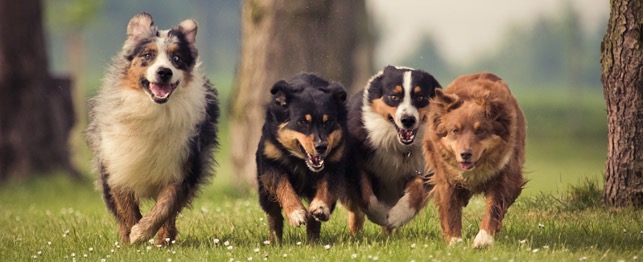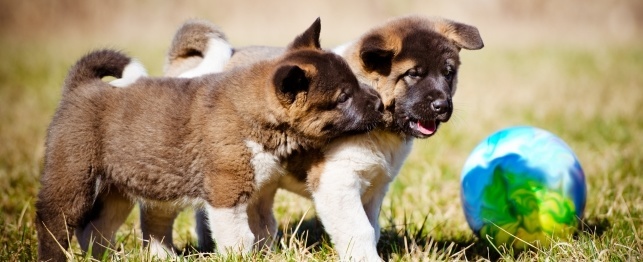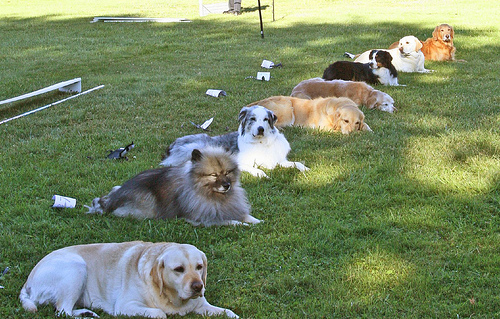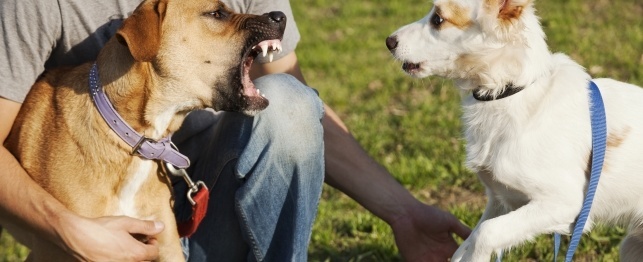Owning a dog brings many pleasures but owners also take on a lot of responsibility too; training a dog is part of fulfilling this responsibility and the dog, owners and the wider community all benefit.
Practically every dog training program uses positive reinforcement as the underpinning technique; dog sits on command, gets a treat; dog comes to heel on command, gets praise; dog fetches a toy; dog gets a reward.
It\'s simple and effective which is why it has become so widespread.
Like anything else in life, following a training plan is not a simple journey from A to B. There will be areas where the program will run into roadblocks but fortunately these are rarely insurmountable and can be traced to three main root causes:
1.inconsistency;
2.impatience; and
3.treating the dog as a thing and not approaching training as a team effort.
We shall deal with each of these in turn.
Inconsistency
Dogs are predictable animals and they view things in black and white; remember the phrase Pavlovian reaction?
A scientist rang a bell every time just before dogs were fed and they became so accustomed to this that they associated the bell ringing with food. Eventually, he simply had to ring the bell and the dogs would salivate even though there was no food.
Dogs simply understand cause and effect and this underlies dog training methods as we noted to begin with an owner commands, Sit!, and as soon as the dog obeys they get, Good Boy! Eventually the dog will sit upon command without praise because they have been conditioned to sit upon that command in anticipation of being praised or receiving a reward.
Now you are in the dog\'s shoes (paws) and as a puppy you are told, Sit! and when you do one day, you are rewarded. This continues for as long as it takes for your puppy brain to get the idea.
One day, you are told, Come here and sit down. And you cannot understand why your owner is becoming frustrated because you simply don\'t understand.
Dogs respond to regular actions and activity which produces regular SAME reward and there should be no deviation from this practice.
Impatience
Dogs are intelligent animals and very social, they expect to be part of a pack and expect and welcome a strict hierarchy so they know their place and this makes them comfortable.
There will be times when a dog simply does not get the concept that the trainer is trying to impart to the animal; sometimes it is because the dog has a stumbling block to assimilating the information and frequently, it is because the trainer is introducing complex concepts the dog simply is unable to grasp fast enough.
Training a dog is not something that produces an immediate result a trained dog it is in fact a process which takes time and requires regular and frequent topping up to reinforce the training as time goes by. Owners frequently demonstrate impatience that their dog is not progressing as quickly as they would like but in most instances, it is their own fault and not that of the animal.
Experienced trainers are patient; they know that the dog will respond to training eventually and it simply requires repeated reinforcement until the animal finally as that Eureka moment.
Dogs are not things they are your training partner
A dog is not a thing that will simply respond without any thought or imbuing its own personality and individuality. Whenever you undertake to train a dog it is not simply the animal that is being trained, it is in fact both of you, you are a team!
The dog is looking to you as its pack leader, it will follow your cues and wants to please you but the owner must also train themselves to understand how their dog is viewing them and the world and understand why the dog reacts in a certain way and not in others.
Training is not a chore and the dog is not simply a dumb animal and treating either as such will not go unnoticed by the animal; dogs are very smart and will pick up on any cues you give and especially if you are not acting as if you are an integral part of the dog\'s life and social make up.

 Parks & Recreation: 7 Tips for Enjoying Dog Parks
Parks & Recreation: 7 Tips for Enjoying Dog P
Parks & Recreation: 7 Tips for Enjoying Dog Parks
Parks & Recreation: 7 Tips for Enjoying Dog P
 Doggie Play Dates: Are They for Your Dog?
Doggie Play Dates: Are They for Your Dog?
Doggie Play Dates: Are They for Your Dog?
Doggie Play Dates: Are They for Your Dog?
 Dog Dudes: Surfing Dogs
Dog Dudes: Surfing Dogs
Dog Dudes: Surfing Dogs
Dog Dudes: Surfing Dogs
 Canine Manners 101: Teaching your dog the basics of the 揝tay?Command
Teach Your Dog The "Stay" Command
Teaching your
Canine Manners 101: Teaching your dog the basics of the 揝tay?Command
Teach Your Dog The "Stay" Command
Teaching your
 Dog Parks and Bites: What You Need to Know
Dog Parks and Bites: What You Need to Know
Dog Parks and Bites: What You Need to Know
Dog Parks and Bites: What You Need to Know